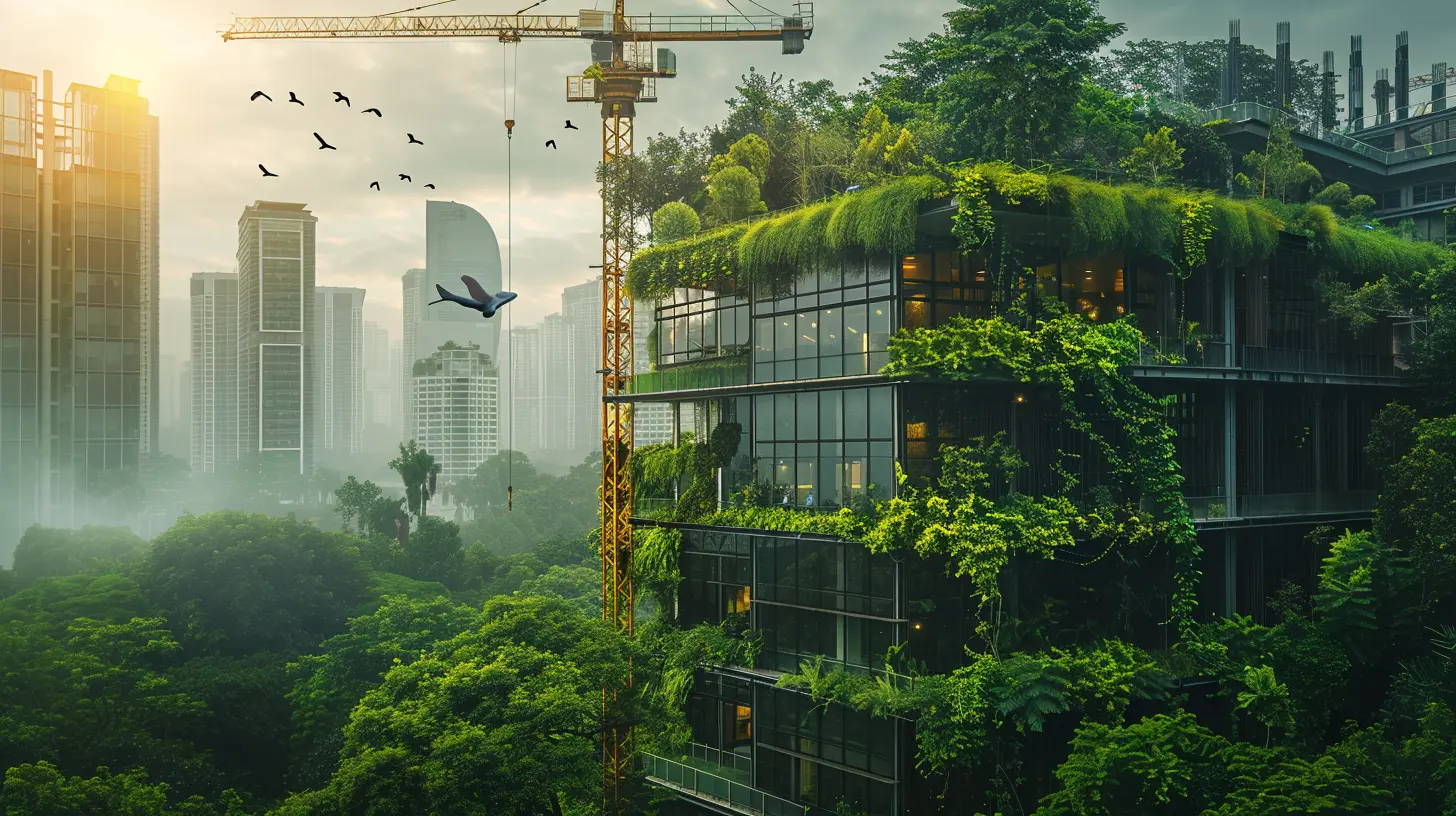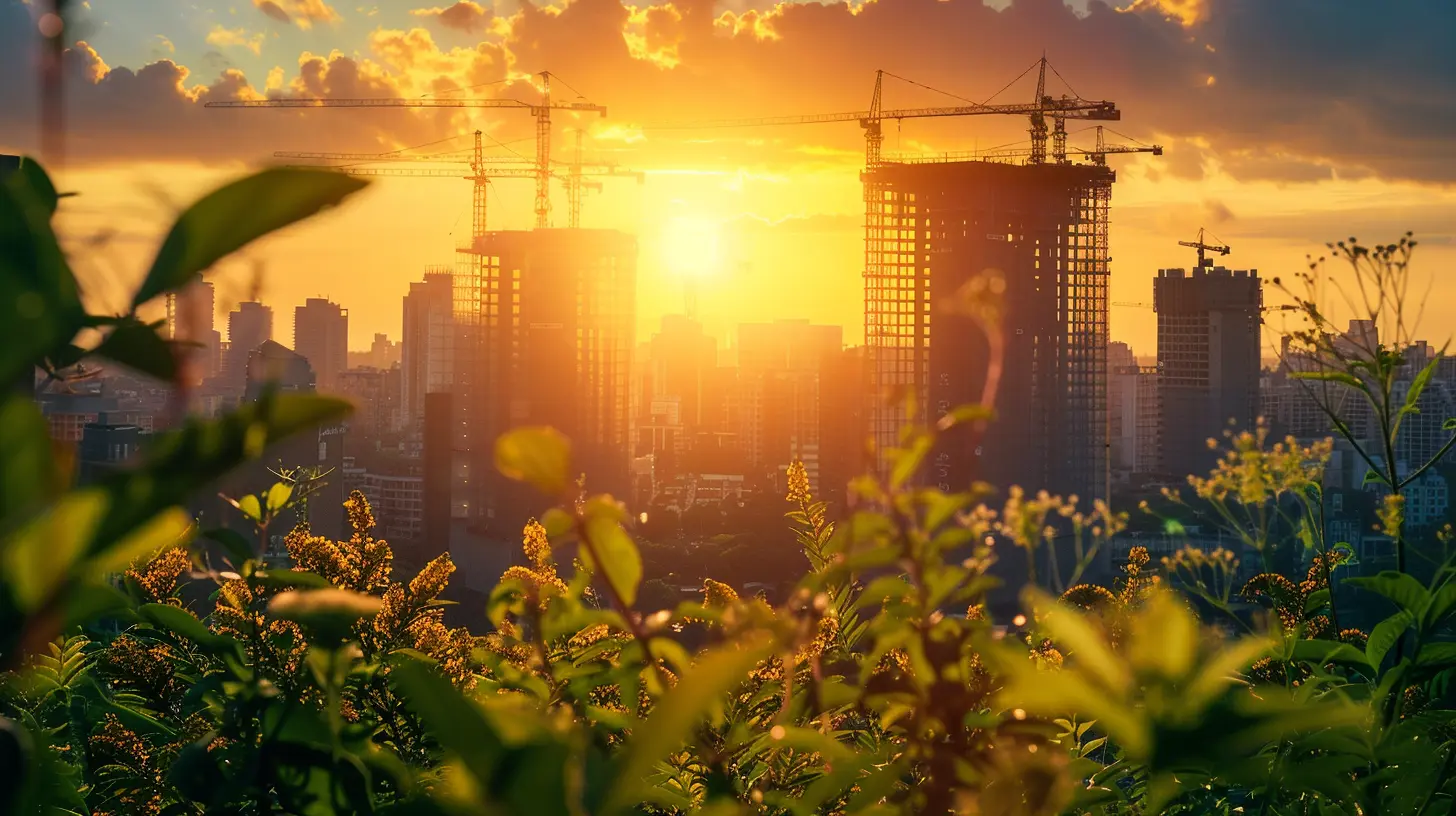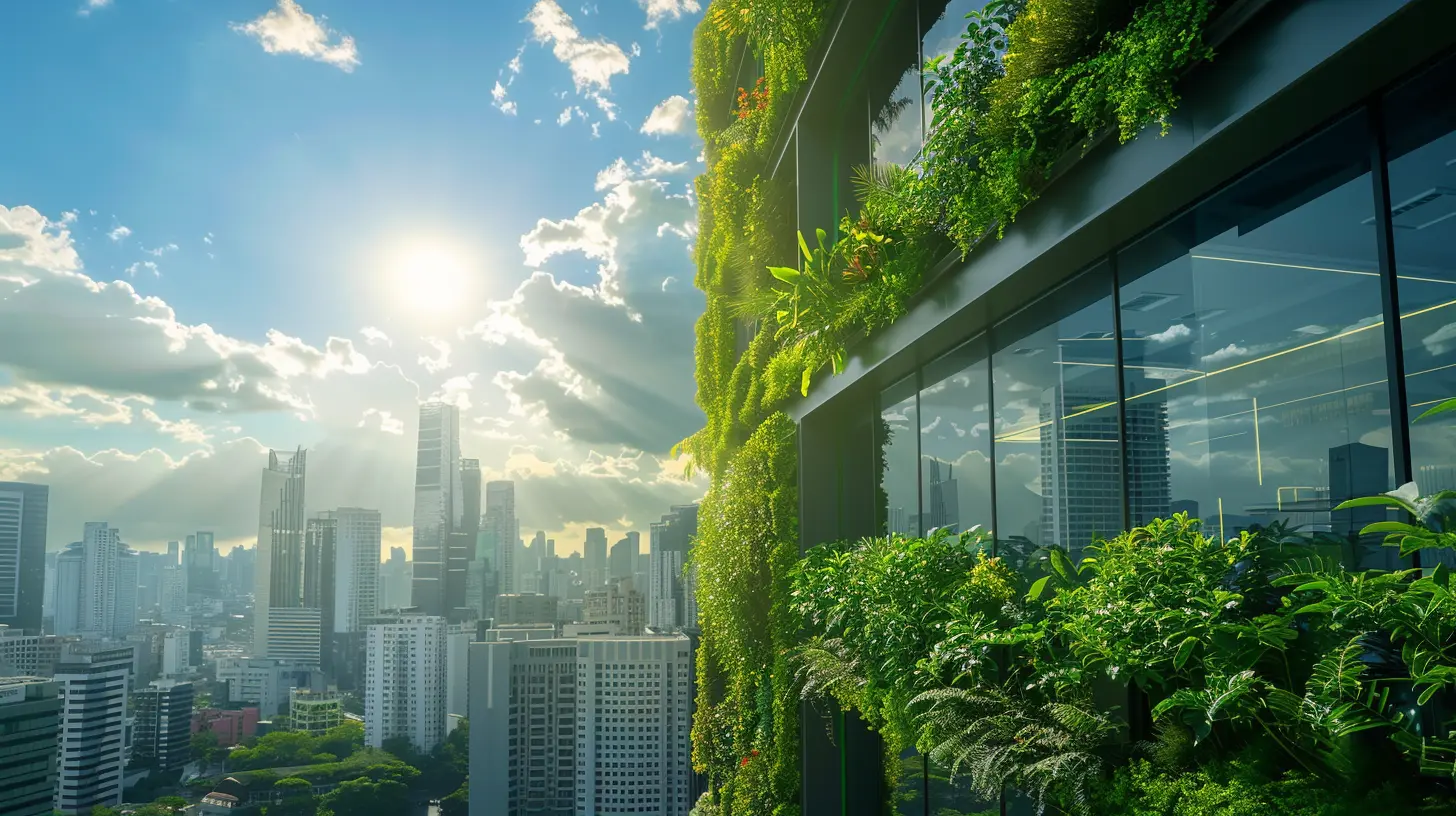How Green Tech is Revolutionizing the Construction Industry
21 July 2025
The construction industry has long been associated with massive energy consumption and environmental impact. But times are changing. With the growing concerns over climate change and resource depletion, green technology is stepping in to reshape the way we build.
From energy-efficient materials to smart building designs, green tech is not just a trend—it's a revolution. And guess what? It’s making construction more sustainable, cost-effective, and innovative than ever before.
So, how exactly is green technology transforming the construction industry? Let’s dive in.

1. Sustainable Building Materials: The Game Changer
Traditional construction materials, such as concrete and steel, have a massive carbon footprint. But today, we have a plethora of sustainable alternatives that are both durable and eco-friendly.Bamboo – Nature’s Powerhouse
Bamboo is one of the strongest and most renewable materials available. It grows incredibly fast and requires minimal resources, making it an excellent alternative to traditional wood. From flooring to structural elements, bamboo is proving to be a fantastic green choice.Recycled Materials – Giving Waste a Second Life
Instead of tossing out old demolition waste, companies are now recycling materials like glass, concrete, and metal. Using recycled materials not only reduces landfill waste but also cuts down on energy consumption during production.Hempcrete – The Future of Eco-Conscious Construction
Hempcrete, a bio-composite material made from hemp, lime, and water, is taking sustainable building to a whole new level. It’s lightweight, highly insulating, and even absorbs CO₂ over time. Talk about a win-win!
2. Energy-Efficient Construction: Reducing Waste and Costs
Energy efficiency is at the core of green tech. The goal is simple: reduce energy use without compromising functionality.Smart Windows – The High-Tech Solution
Imagine windows that automatically adjust to the amount of sunlight they receive. Smart glass technology allows windows to change their tint, reducing the need for air conditioning and lowering energy costs.Cool Roofs – Keeping It Chill
Cool roofs are designed to reflect more sunlight and absorb less heat. By keeping buildings cooler, they help reduce the need for air conditioning, which translates to lower energy bills and fewer carbon emissions.LED Lighting – Small Changes, Big Impact
Switching to LED lighting might seem like a minor tweak, but it has a huge impact. LEDs use up to 75% less energy and last significantly longer than traditional bulbs. Plus, they provide better lighting quality—goodbye, flickering fluorescent lights!
3. Smart Buildings: The Future of Construction
The rise of intelligent buildings is one of the biggest breakthroughs in green tech. Smart technology allows buildings to be more energy-efficient, automated, and environmentally friendly.IoT in Construction – Buildings That “Think”
The Internet of Things (IoT) is making buildings smarter by integrating sensors and automated systems. These technologies can monitor energy consumption, optimize heating and cooling, and even detect maintenance issues before they become problems.Green Roofs – Nature Meets Architecture
Green roofs, covered with vegetation, provide natural insulation, improve air quality, and reduce urban heat islands. It’s like having a mini-forest on top of a building—what’s not to love?Rainwater Harvesting Systems – Reusing Every Drop
Water is a precious resource, and green buildings are making better use of it. By installing rainwater harvesting systems, buildings can collect and store rain for everything from irrigation to toilet flushing.
4. Renewable Energy in Construction: Powering the Future
Fossil fuels are slowly fading, and renewable energy is taking center stage in construction. From solar panels to wind energy, green power sources are making buildings self-sufficient and reducing dependence on non-renewable energy.Solar Power – Harnessing the Sun’s Energy
Solar panels are becoming more affordable and efficient, making them a no-brainer for sustainable construction. Rooftop solar installations can power entire buildings, reduce electricity bills, and lower carbon footprints.Wind Turbines – A Breath of Fresh Air
For larger-scale projects, wind turbines are an excellent renewable energy source. Some modern buildings even integrate small turbines to generate on-site power.Geothermal Heating – The Hidden Gem
Geothermal systems use the Earth’s natural heat to regulate building temperatures, cutting down on energy consumption significantly. While the upfront cost may be higher, the long-term savings are worth it.5. 3D Printing and Prefabrication: Redefining Construction Efficiency
Who would’ve thought that 3D printing could play a major role in the construction industry? But here we are—printing entire houses in a matter of days!3D-Printed Buildings – Faster, Greener, and Stronger
3D printing allows for precise material usage, minimizing waste and maximizing efficiency. Plus, many printers use sustainable materials, further reducing the environmental impact.Prefabrication – Cutting Down Construction Waste
Prefabrication involves assembling parts of a building in a controlled environment before transporting them to the site. This process helps reduce material waste, speeds up construction, and minimizes disruption to the surrounding environment.
6. Green Tech and Government Support: Policies That Drive Change
Governments worldwide are pushing for greener construction through policies, tax incentives, and regulations.LEED Certification – The Gold Standard for Green Buildings
LEED (Leadership in Energy and Environmental Design) certification encourages builders to adopt sustainable practices. The more eco-friendly a building is, the higher its certification level.Tax Breaks for Green Construction
Many governments offer tax credits and incentives to businesses that invest in renewable energy and sustainable practices. This financial push makes green construction even more attractive.7. Challenges and the Road Ahead
Sure, green construction is amazing, but it’s not without its challenges. High initial costs, lack of awareness, and resistance to change are some hurdles the industry faces.However, as technology advances and sustainability becomes a top priority, green construction will continue to grow. Educating professionals, investing in research, and adopting new mindsets will accelerate the shift toward a greener future.
Final Thoughts: Green Tech is the Future of Construction
There’s no denying it—green tech is revolutionizing the construction industry. From renewable energy and smart technology to sustainable building materials, the future of construction looks brighter (and greener!) than ever.Embracing green building practices not only benefits the environment but also saves money, improves efficiency, and enhances the quality of life. So, whether you’re a builder, architect, or just someone passionate about sustainability, now is the time to support the green movement in construction.
The revolution has begun—are you ready to be part of it?
all images in this post were generated using AI tools
Category:
Environmental TechAuthor:

Jerry Graham
Discussion
rate this article
1 comments
Raleigh Tucker
This article highlights the essential shift towards green technology in construction. It’s refreshing to see how innovations are driving sustainability, reducing waste, and improving efficiency. Embracing these changes not only benefits the environment but also enhances long-term viability for companies. The future of construction looks promising with these developments.
July 26, 2025 at 3:00 AM

Jerry Graham
Thank you for your insightful comment! I'm glad you found the article highlights on green technology's impact in construction encouraging. The shift towards sustainability is indeed vital for both the environment and the industry's future.


